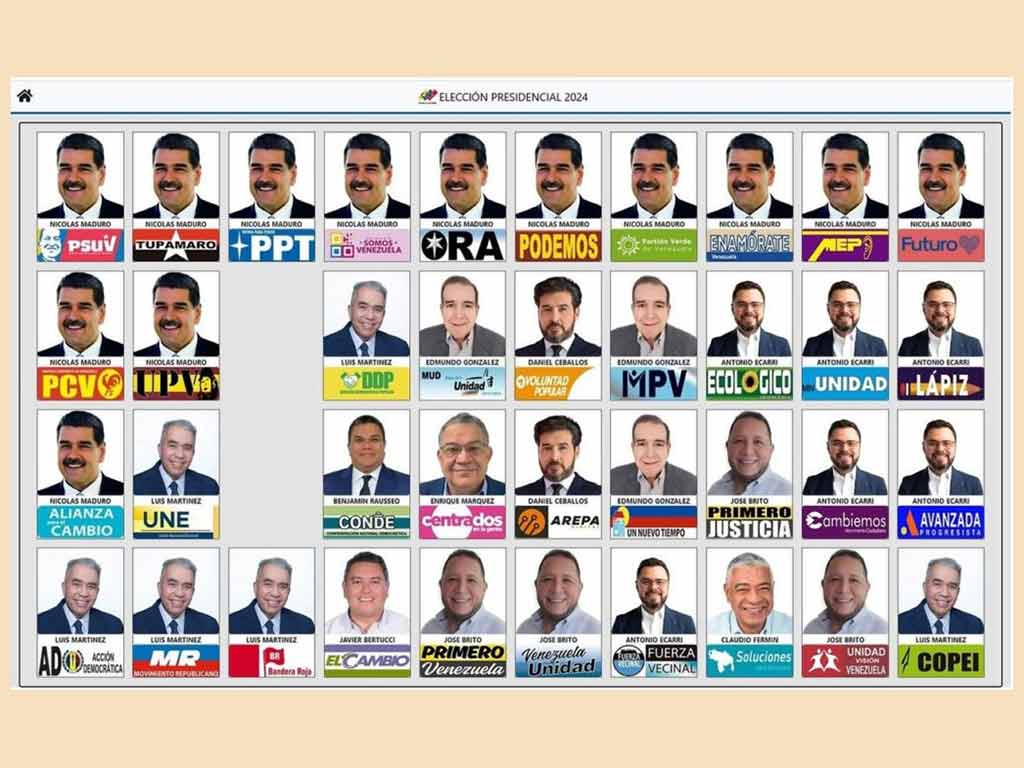Sunday’s election – like every previous one in the past 25 years – was colored by misinformation and attacks not only on its system of government, but also on the arbiter represented by the National Electoral Council.
There are ten candidates aspiring to occupy the presidential seat in Miraflores Palace, the seat of government, nine of whom are from the opposition sector and the ruling party of Nicolas Maduro, who aspires to be re-elected and is running for his third consecutive term.
Alongside the incumbent president, the diverse right-wing representatives Edmundo González, Luis Eduardo Martínez, José Brito, Antonio Icari, Benjamin Rossio, Claudio Fermín, Javier Bertucci, Enrique Márquez and Daniel Ceballos are also running.
All of them are represented by 37 political parties and movements from across the country’s ideological spectrum, of which 24 represent the right and 13 represent the current ruler, grouped with the great nationalist pole Simon Bolivar.
Polling stations will be open from 6:00 a.m. to 6:00 p.m. local time, and may exceptionally remain open as long as queues remain at polling stations, according to the Organic Law on Electoral Operations.
In total, there will be 21,392,464 Venezuelans over the age of 18 who will be eligible to vote in the 30,026 voting centers and more than 15,000 tables installed throughout the country, while 69,211, duly registered and authorized by the National Electoral Council, will do so abroad.
This election day was preceded by 22 days of intensive election campaigns, during which each candidate presented his proposals and government programmes in accordance with the provisions of the national constitution and laws.
The electoral branch authorities themselves acknowledged to the media and national and international observers the good performance of the process they have been implementing for months, which had completed its timetable by 86 percent last Thursday.
A total of 910 guests and observers from around the world traveled to Caracas to accompany the voting process, including the UN team of experts, the African Union, the US-based Carter Center, and the Latin American Council of Electoral Experts.
So did former Latin American presidents Ernesto Samper, President of Colombia, and Leonel Fernández, President of the Dominican Republic, and special envoys of governments, political parties and others who had previously met at the National Electoral Congress, from more than a hundred countries.
Within the framework of the electoral program, the Strategic Operations Command of the Armed Forces deployed more than 388,000 soldiers throughout the country through the Republic Plan, and 180,000 officials from the police, firefighters, civil protection and other security and protection services. Memorandum/JCD

“Unapologetic tv specialist. Hardcore zombie trailblazer. Infuriatingly humble problem solver.”

